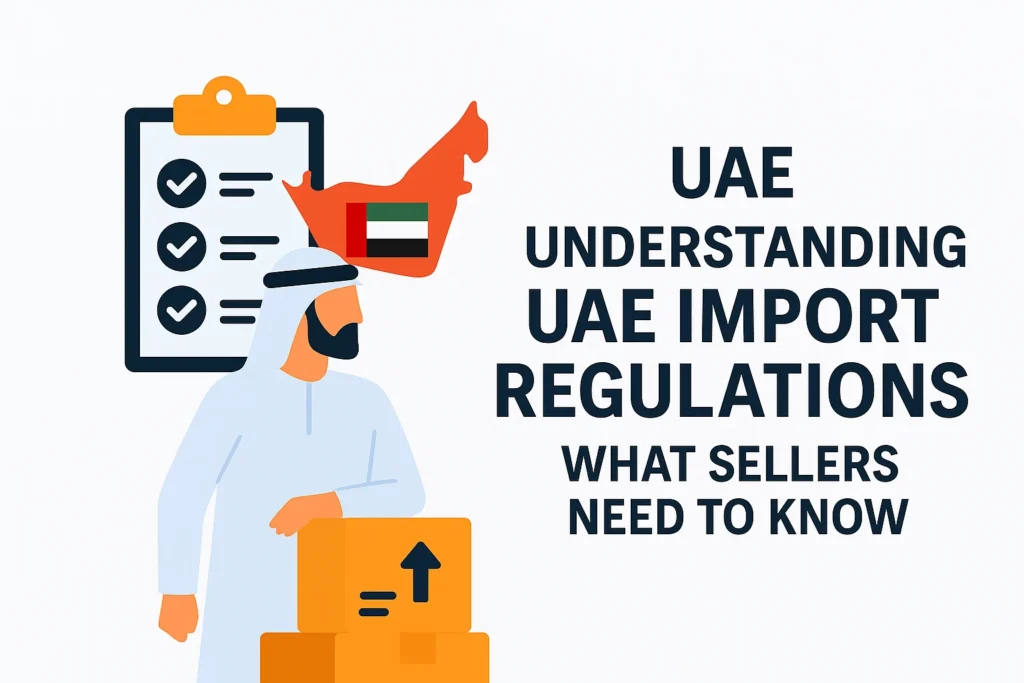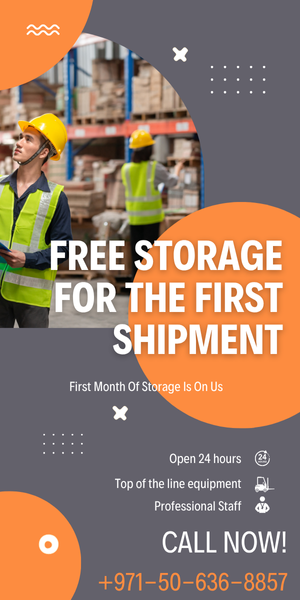If you’re an e-commerce seller planning to import goods into the UAE, knowing the ins and outs of customs rules and regulatory requirements can save you time, money, and headaches. Here’s a straightforward guide to help you navigate the process, whether you’re shipping small batches to sell on Amazon, Noon, or your own online store.
Licenses and Legal Setup
To import goods into the UAE, you must hold the appropriate trade license. This typically comes from the Department of Economic Development (DED) in your emirate. If you’re setting up in a free zone, you can use that zone’s license instead.
E-commerce businesses also need the correct license. This might be an e-trader license for small social-media sellers, or a full e-commerce license for businesses selling via websites or marketplaces.
Import Duty and Taxes
The UAE applies a standard 5% customs duty to most imported goods, calculated based on the CIF value, which includes cost, insurance, and freight. Some categories, such as alcohol and tobacco, have much higher rates.
UAE VAT of 5% is applied on top of the customs duty and CIF value.
In Dubai, import duties now apply to any shipment over AED 300, lowered from a previous threshold of around AED 970.
Free Zones vs Mainland Business
If you’re registered within a free zone, most goods imported into that zone are exempt from customs duties unless they’re transferred to mainland UAE. Free zones also allow 100% foreign ownership, full profit repatriation, and corporate tax benefits.
However, businesses operating from the mainland can sell directly to the local market without needing a distributor or local sponsor. The required licensing body varies by emirate.
Required Documentation
When you import goods, UAE customs requires the following documentation:
- Commercial invoice with HS codes and CIF value
- Certificate of Origin approved by the exporting country’s Chamber of Commerce
- Detailed packing list including weights, quantities, and SKU data
- Import permits or approvals for regulated goods from relevant agencies
If documentation is missing or incomplete, authorities may impose a deposit or delay clearance until the papers are submitted.
Avoiding Costly Mistakes
Make sure your HS codes are correct. Incorrect classifications may lead to inspections or fines. In some cases, customs will charge you to reclassify items.
Mistakes in paperwork, under-declared values, or missing documents can result in hold-ups or penalties. Always double-check your invoices, certificates, and shipment details.
Quick Reference Summary
| Requirement | Notes |
|---|---|
| Business License | DED mainland or Free Zone license required |
| Customs Duty | 5% CIF value (higher on alcohol and tobacco) |
| VAT | 5% applied on (CIF + Customs Duty) |
| Import Threshold (Dubai) | Applies to shipments over AED 300 |
| Documentation | Invoice, HS code, packing list, CO, permits |
| Operate from Free Zone? | Yes = duty-free imports; Mainland sales restricted |
Final Word
Importing goods into the UAE doesn’t have to be complicated. With the right license, paperwork, and partner, you’ll stay compliant and your supply chain stays smooth. If you’re a seller working through imports, local storage, or clearing customs regularly, SamVertex is here to help map your route to success.
Resources
- UAE Import Requirements & Documentation: trade.gov, alsharqi.co, shuraatax.com, golocad.com
- Duty and CIF Valuation Rules, Dubai customs thresholds: cleartax.com, golocad.com, ey.com, u.ae
- VAT Calculation Guidelines: clarionshipping.com, shuraatax.com
- Free Zone Regulations: en.wikipedia.org
- Licensing and Federal E-commerce Law (Law No. 14 of 2023): linkedin.com, u.ae

